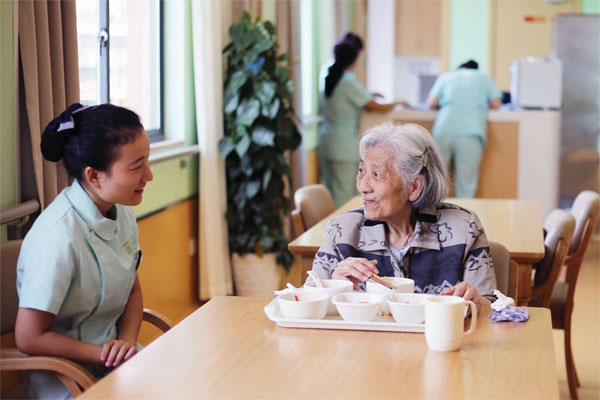At life's end, palliative care eases pain of patients


With an increasingly aging population in China, a country where supposedly the mention of death is seen as taboo, it appears that acceptance of palliative care is growing, said Tang Jianzhong, head of Yunnan New Kun Hua Hospital.
The World Health Organization defines palliative care as an approach that improves the quality of life of both patients and their families when faced with life-threatening illness. In comparison with traditional medical treatments, which emphasize curing the diseases, palliative care advocates for pain relief and allows them to die peacefully.
Unlike euthanasia, it focuses on providing relief from the symptoms, pain, physical stress, and mental stress at any stage of illness.
Riding on the success of its first healthcare cooperation project in Yunnan, the Singapore International Foundation launched the Enhancing Palliative Care in Yunnan, China project in partnership with the Yunnan New Kun Hua Hospital and the Yunnan Health and Development Research Association, as well as Singapore's Tan Tock Seng Hospital on Monday.
Supported by the Health Commission of Yunnan province and Health Commission of Kunming, the three-year collaboration kicked off on Monday at the Yunnan New Kun Hua Hospital with a province-wide symposium that brought together healthcare professionals from Singapore and China to discuss the way forward on palliative care.
China and Singapore have in recent years placed increasing importance on palliative care given rapidly aging populations and increases in non-communicable, life-threatening medical conditions.
- Algerian student explores TCM wisdom in Hefei
- China completes new round of bulk medical supply purchases
- Spokesperson reiterates Taiwan question is China's internal affair
- The crazier 'Taiwan independence' moves, the tighter anti-secession noose: Mainland spokesperson
- Mainland spokesperson responds to Trump's latest remarks on Taiwan
- Xi on Party self-governance and anti-graft





































